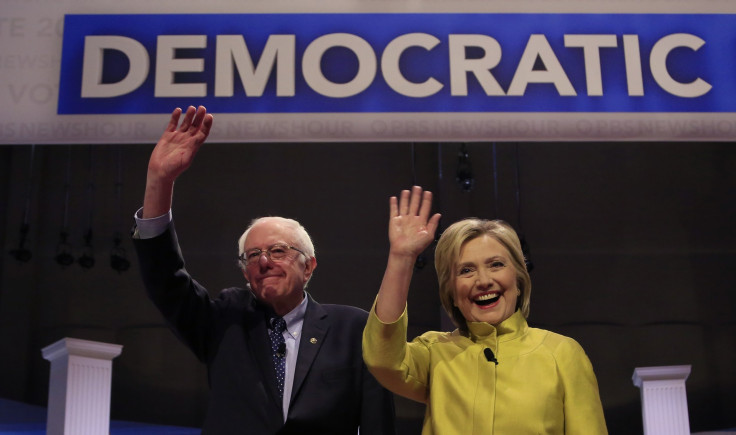Election 2016: Total Delegate Count, Standing For Democrats Ahead Of Super Tuesday Primaries

Bernie Sanders and Hillary Clinton headed into Saturday’s South Carolina primary knowing the contest presented a significant test for both of them. The state, in which black voters make up a majority of the Democratic primary electorate, was expected to signal their success or failure at courting African-American voters, but it also offered the last chance to accumulate delegates before the all-important Super Tuesday contests this week.
With four presidential nominating contests out of the way, Clinton has begun to pull away from Sanders in the delegate count. The two nearly tied in the Iowa caucuses, but Clinton came out ahead. Then Sanders routed her in New Hampshire, while Clinton pulled out a win in Nevada, and Saturday night she took South Carolina with nearly 75 percent of the vote, giving her three contests to Sanders’ one.
But delegates matter a lot more than the popular vote in presidential primaries because the nominee from each party will be chosen by delegates at their national conventions this summer. None of the first four states has a particularly large number of delegates. And because the Democrats in them awarded delegates proportionally based on congressional districts and other criteria, close races resulted in both candidates getting a similar number of delegates.
The place where Clinton has developed her significant lead over Sanders is really among superdelegates — 712 elected officials and party elders who can choose which candidate to support and count toward the total needed to win. Democrats need 2,383 delegates to win the party’s nod, and after the first four nominating contests, Clinton stood at 544 delegates while Sanders had 85. These numbers include both pledged delegates — those awarded in the elections or caucuses — and superdelegates, although superdelegates can change their allegiance if they see Sanders building momentum among regular voters.
Clinton’s campaign was counting on a win Saturday in South Carolina to help her take other Southern states where she leads the Vermont senator by wide margins. Sanders, on the other hand, has emphasized the gains he has made among young African-American voters, but Saturday’s results show he was largely not able to break through among a mostly African-American electorate.
After Saturday, the next contests come just three days later on Super Tuesday when Democrats in 11 of the 12 states holding contests will vote and 865 delegates will be awarded. For now, here is a breakdown of where Clinton and Sanders have gotten their delegates so far:
Iowa
Clinton: 23
Sanders: 21
New Hampshire
Clinton: 9
Sanders: 15
Nevada
Clinton: 20
Sanders: 15
South Carolina
Clinton: 39
Sanders: 14
Superdelegates
Clinton: 453
Sanders: 20
Total so far
Clinton: 544
Sanders: 85
© Copyright IBTimes 2024. All rights reserved.





















